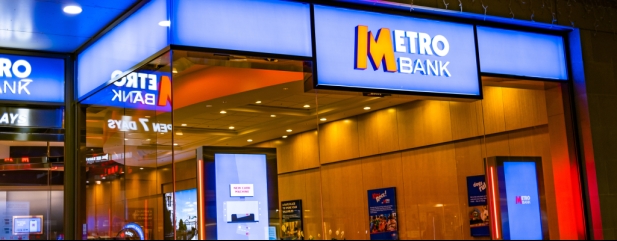Archived article
Please note that tax, investment, pension and ISA rules can change and the information and any views contained in this article may now be inaccurate.
It’s not just Metro Bank – nearly all challenger banks have been poor investments

Financial services group Metro Bank (MTRO) has survived another crisis after agreeing a £925 million rescue package yet question marks remain about its future.
Metro Bank was the highest profile of the challenger banks which emerged in the wake of the financial crisis promising to shake up high street and commercial banking.
In theory, because they were not saddled with crisis-ridden balance sheets, a litany of scandals and, in some cases, state ownership of their shares, the challengers had a good chance of thriving and offered a credible alternative option for both customers and investors. Some of these businesses were genuine start-ups while others were built on the bones of existing institutions.
In some ways Metro Bank was an outlier in the emergent space as, rather than looking to avoid the shackles of a large and expensive network of branches, it went big on having a physical presence. This, along with little touches like offering dog treats for customers’ canine companions, was meant to make the bank stand out.
This strategy left it with a high-cost operation and one which has been poorly run, leading to the recent crisis. Shore Capital analyst Gary Greenwood observes: ‘Subject to the required shareholder approvals, Metro Bank now finds itself in a position where it can continue to trade. However, whether it can ultimately deliver on its growth ambitions to leverage its expensive cost base and improve returns remains to be seen.’
With some names already having exited the market or been subsumed into other businesses, the accompanying table shows how some of the main challenger banks have performed on the stock market over the last five years on a total return basis and it is not a pretty story. Even previous success stories like OSB (OSB) have struggled of late as the market frets about the risk of bad debts and the cost of borrowing soars.
In the case of OSB, the company was hurt by a warning in July of fewer mortgage customers moving on to a variable rate at the end of their fixed term, with higher rates forcing them to be more proactive and seek better deals elsewhere.
Metro Bank may have secured some breathing space through the agreement thrashed out with its investors and creditors but the Bank of England is reportedly looking to smooth the way for a sale of the company to a larger player with NatWest (NWG), Lloyds (LLOY) and Santander in the frame.
Given the regulatory and capital demands and complexity involved in running a bank, particularly during periods of uncertainty, this is a sector which is always likely to be dominated by the large incumbent players.
Though, as a reminder, the big British banks have hardly enjoyed a happy time of it either. In the UK banking sector, it is a case of too big to fail and too small to succeed.
Important information:
These articles are provided by Shares magazine which is published by AJ Bell Media, a part of AJ Bell. Shares is not written by AJ Bell.
Shares is provided for your general information and use and is not a personal recommendation to invest. It is not intended to be relied upon by you in making or not making any investment decisions. The investments referred to in these articles will not be suitable for all investors. If in doubt please seek appropriate independent financial advice.
Investors acting on the information in these articles do so at their own risk and AJ Bell Media and its staff do not accept liability for losses suffered by investors as a result of their investment decisions.
Issue contents
Feature
Great Ideas
News
- Tesla deliveries miss in third quarter and pose the risk of lower margins
- Weak retail figures and Bank of England gloom dial down rates pressure
- Markets buffeted by strong US job gains and Israel attacks
- Hunting lifted by higher oil prices and inspiring long-term vision for business
- VinFast stock’s rapid rise matched by equally fast falls
 magazine
magazine








